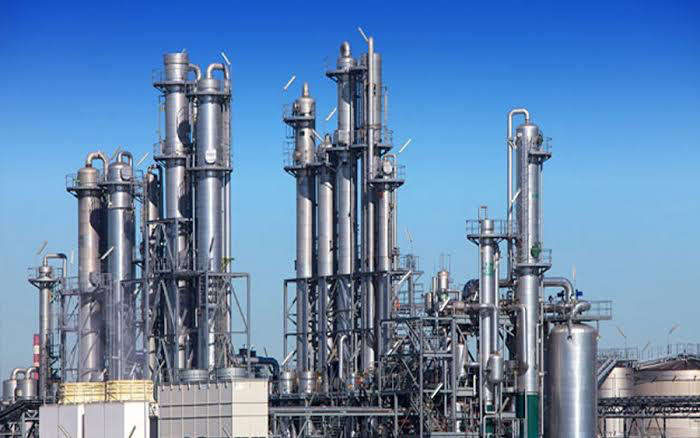In a development for Nigeria’s petroleum sector, Mr. Mele Kyari, the Group Chief Executive Officer of the Nigerian National Petroleum Corporation Ltd (NNPCL), announced that the Port Harcourt refinery is set to resume production by the end of March 2024. This announcement came during a session with the Senate Ad-hoc Committee tasked with investigating the Turn Around Maintenance (TAM) projects of the country’s refineries.
The refurbishment of the Port Harcourt refinery marks a pivotal moment in Nigeria’s efforts to revitalize its indigenous oil processing capabilities. Mr. Kyari shared that the mechanical completion of the Port Harcourt refinery was achieved as previously stated in December 2023, signaling the end of rehabilitation work. The focus now shifts to testing the refinery to ensure its operational readiness. “In the next two weeks, production will start. We did mechanical completion of Port Harcourt, that was what we said in Dec 2023. That means we are done with our rehabilitation work, now you are to test if this completion is okay,” Mr. Kyari explained.
Furthermore, Mr. Kyari provided updates on the status of other refineries within the country. The Warri refinery has also seen the completion of mechanical works and is currently undergoing regulatory compliance processes to ensure its adherence to safety and operational standards. However, the Kaduna refinery’s readiness is projected for December, indicating a phased approach to getting Nigeria’s refineries back online.
This refinery rehabilitation project is not just a technical venture but also involves significant logistical efforts. Mr. Kyari highlighted that all the crude lines are active, with over 450,000 barrels already delivered into the Port Harcourt refinery. Despite potential security challenges, the government’s proactive measures and the NNPCL’s commitment to transparency and collaboration with the legislative oversight committee promise a positive outlook for the refinery’s operation.
The Senate Ad-hoc Committee, led by Chairman Ifeanyi Ubah, expressed satisfaction with the progress reported by NNPCL. The committee’s oversight function is critical in ensuring the accountability and success of the refinery rehabilitation projects. Senator Ubah noted, “I believe everything is positively on track. We want the refinaries to work and we have gotten firm promise from NNPCL on when they will begin operation. The next step is to visit the refineries and assess the progress.”
The collaboration between NNPCL and the Senate Ad-hoc Committee underscores the national importance of the refinery projects. Not only do these efforts aim to restore Nigeria’s capacity to process its own crude oil, but they also signify a move towards energy self-sufficiency and economic stability. The operationalization of the Port Harcourt refinery, followed by Warri and eventually Kaduna, will contribute significantly to Nigeria’s petroleum sector, potentially impacting global oil markets.
The upcoming meeting between the committee and Mr. Kyari on March 19, which will focus on issues related to crude oil theft, further demonstrates the comprehensive approach being taken to address the challenges facing Nigeria’s oil industry. The effective management of these issues is crucial for the security of the nation’s oil assets and the success of its refinery operations.
As the Port Harcourt refinery gears up to resume production, the anticipation among stakeholders and the Nigerian populace is palpable. This development not only marks a significant milestone in Nigeria’s industrial capabilities but also promises to stimulate economic growth, create jobs, and reduce the nation’s reliance on imported petroleum products. The NNPCL’s transparent communication and collaboration with the legislative committee serve as a model for public-private partnership in national development projects.
The progress in refurbishing and getting Nigeria’s refineries operational again is a testament to the country’s commitment to reviving its petroleum sector. As these efforts come to fruition, they are set to redefine Nigeria’s position in the global oil landscape, transitioning from a crude oil export-dependent nation to one with substantial domestic processing capabilities. This strategic move could herald a new era of economic prosperity and energy security for Nigeria.
Source: The Sun Nigeria



